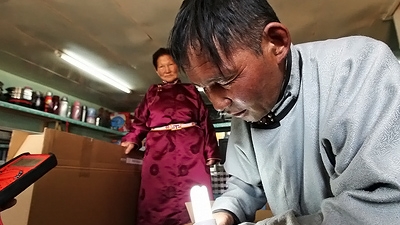The World Bank Group set two ambitious goals in 2013, and in the process made clear that one concept will underlie its actions toward both: sustainability.
"Ending extreme poverty within a generation and promoting shared prosperity must be achieved in such a way as to be sustainable over time and across generations," the goals document reads. "This requires promoting environmental, social, and fiscal sustainability. We need to secure the long-term future of our planet and its resources so future generations do not find themselves in a wasteland."
With the goals as a foundation, the Bank Group set a clear direction for its energy work going forward that focuses on exanding energy access, use of renewable energy, and improvement in energy efficiency. In urban development, it launched the Low-Carbon, Livable Cities Initiative to help fast-growing cities in developing countries plan for sustainable development and prepare to finance it. The World Bank Group also established a firm, evidence-supported position on climate change and on the critical need for building resilience and integrating disaster risk management into development to save lives and avoid millions of people falling back into poverty.
In other sectors, the Bank Group expanded sustainable development principles by ramping up work in the use of information and communication technologies, support for public transportation systems, development of climate-smart agriculture, and work in integrated urban water management. A new report on social inclusion dove deeper into the forces behind exclusion that challenge sustainable development and the goal of shared prosperity.
Sustainable Energy for All
In June, the World Bank Board of Directors, representing 188 member countries, put expanding energy access and accelerating energy efficiency and renewable energy at the core of the Bank Group's work in the sector. The energy directions paper embraced the goals of a new international initiative: Sustainable Energy for All, chaired by World Bank Group President Jim Yong Kim UN Secretary-General Ban Ki-moon. Its goals: by 2030, achieve universal energy access, double the share of renewable energy in the global mix, and double the rate of improvement in energy efficiency.
The energy directions paper also drew global attention for its position on coal: It affirmed that the World Bank Group will “only in rare circumstances” provide financial support for new greenfield coal power generation projects. Several multilateral development banks and developed country governments followed with similar pledges.
The Bank also increased its focus on geothermal exploration, reducing gas flaring, and, through its ESMAP partnership, increasing the use of cleaner cookstoves and helping cities improve their energy efficiency.
Significantly, the directions paper emphasizes energy prices as a key to energy efficiency and growing the share of renewable energy sources in countries' energy mix.
Low-Carbon, Livable Cities
From Africa to Asia, city leaders were talking with the World Bank about resilience and low-carbon development. They want to build a long, successful future, but most of them face a serious challenge: finance. Only 4 percent of the 150 largest cities in developing countries are considered creditworthy in international financial markets, and only 20 percent in local markets.
The World Bank launched its Low-Carbon, Livable Cities Initiative in 2013 to help. It focuses on two vital steps: urban planning, including developing the greenhouse gas accounting and other data and analysis needed for informed decisions, and helping cities raise their credit ratings so they can tap into the finance needed.
The Bank's first City Creditworthiness Training Program for African cities drew 55 senior municipal administrators from 10 countries for a five-day training event in October to get them started. The program's ambitious goal: help 300 cities in developing countries raise their credit ratings over the next four years and begin securing projects and finance. With the many other partners focused on cities, we see momentum growing around support for municipal and city leaders and institutions.


